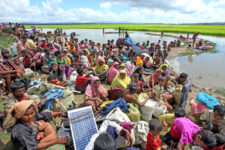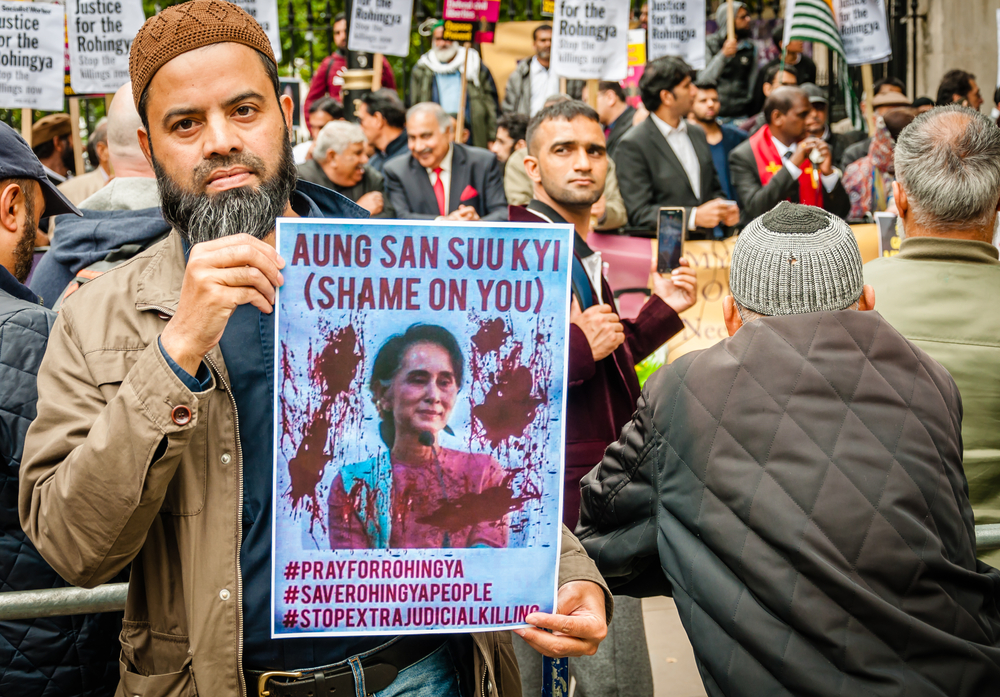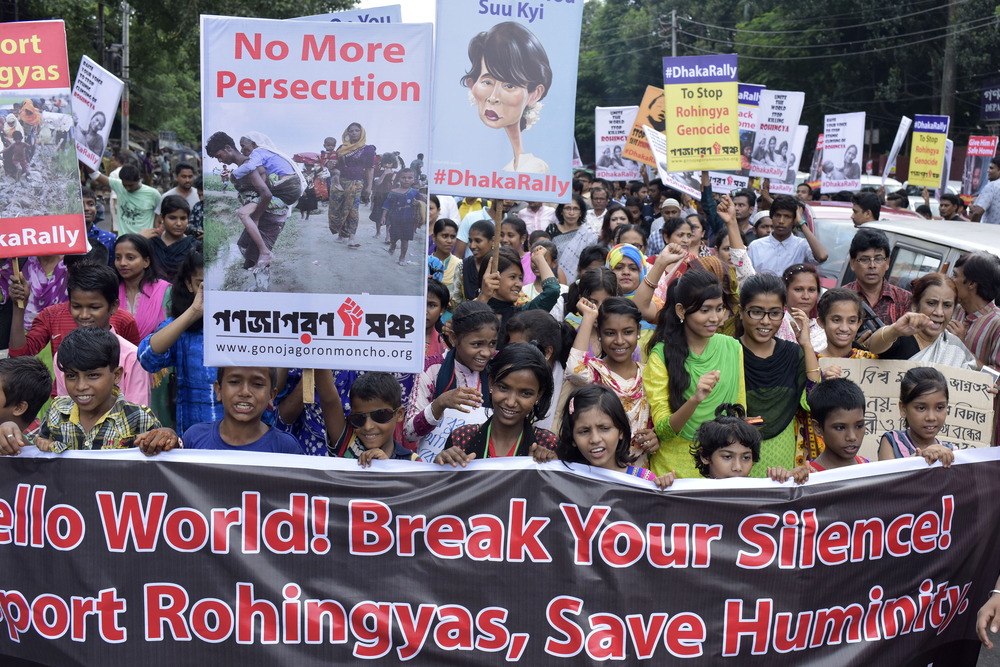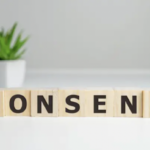Post-Coup Myanmar Mobilises for Democracy. But There’s no Respite for the Rohingya

In an early morning coup on 1 February, the Myanmar military – the Tatmadaw – reassumed complete control of the nation of Myanmar, after a little over five years since the southeast Asian country held its first democratic election in 25 years, ending 50 years of direct military junta rule.
The takeover involved a series of early morning raids, which saw the detainment of key National League for Democracy (NLD) government figures, including state counsellor Aung San Suu Kyi: the de facto head of state.
Myanmar has been transitioning towards a free society since the November 2015 election. However, the 2008 junta-drafted constitution ensures that 25 percent of parliamentary seats go to military officials, and this allotment covers key roles, such as defence, the interior and border affairs.
The Myanmar public was further reminded of its authoritarian past when the nation’s access to the internet was shut down last week.
And recent days have seen tens of thousands of citizens taking to the streets in the largest city Yangon, as well as other major centres, calling for a return to democratic rule.

The long fight for democracy
Suu Kyi was returned to power with a NLD landslide victory in a general election last November. The military-backed opposition party, however, claimed widespread voter fraud, although the election commission went on to find this wasn’t the case.
Then, as the NLD government was set to commence a new parliamentary session last week, the military staged its coup, and declared a year-long state of emergency.
Suu Kyi was arrested and charged with various offences, including the alleged importation of some two-way radios. And she’s being held in custody until 15 February pending investigations.
This is not the first time the military has detained Suu Kyi. She was held under house arrest for 15 of the 21 years between 1989 and 2010 over her part in leading a popular uprising against the 1962 established Ne Win dictatorship in August 1988.
The military responded to the revolt by an overtly violent retaking of control in September that year. And to placate the population, the dictatorship held democratic elections in 1990, which saw Suu Kyi swept into victory, although the junta continued to maintain its control.
The 2007 Saffron Revolution, a popular uprising led by Buddhist monks, was also brutally suppressed.

Ethnic cleansing
However, while Suu Kyi continues to hold an esteemed place within the hearts much of the Myanmar population, the daughter of one of the nation’s key independence leaders has certainly fallen from grace on the international stage over her treatment of the stateless Rohingya.
The Rohingyas are a minority population living in north western Rakhine province. And despite having lived there for centuries, the government refuses their citizenship.
Over the last decade, pogroms have been carried upon the mostly Muslim Rohingyas by the military and the local Rakhine Buddhist population.
While there were hopes that the situation for Rohingyas would improve after the 2015 democratic elections. In August 2017, a massive military crackdown upon this civilian population commenced, which led to over 700,000 Rohingyas fleeing across the border into neighbouring Bangladesh.
Yet, the nation’s newly installed leader Aung San Suu Kyi remained silent as the sectarian violence was meted out upon the over 1 million Rohingyas. And in 2019, she stood before the International Criminal Court to defend the Myanmar military against claims of genocide.
Indeed, it appears that for the Rohingyas dictatorship or democracy brings no end to their persecution.







